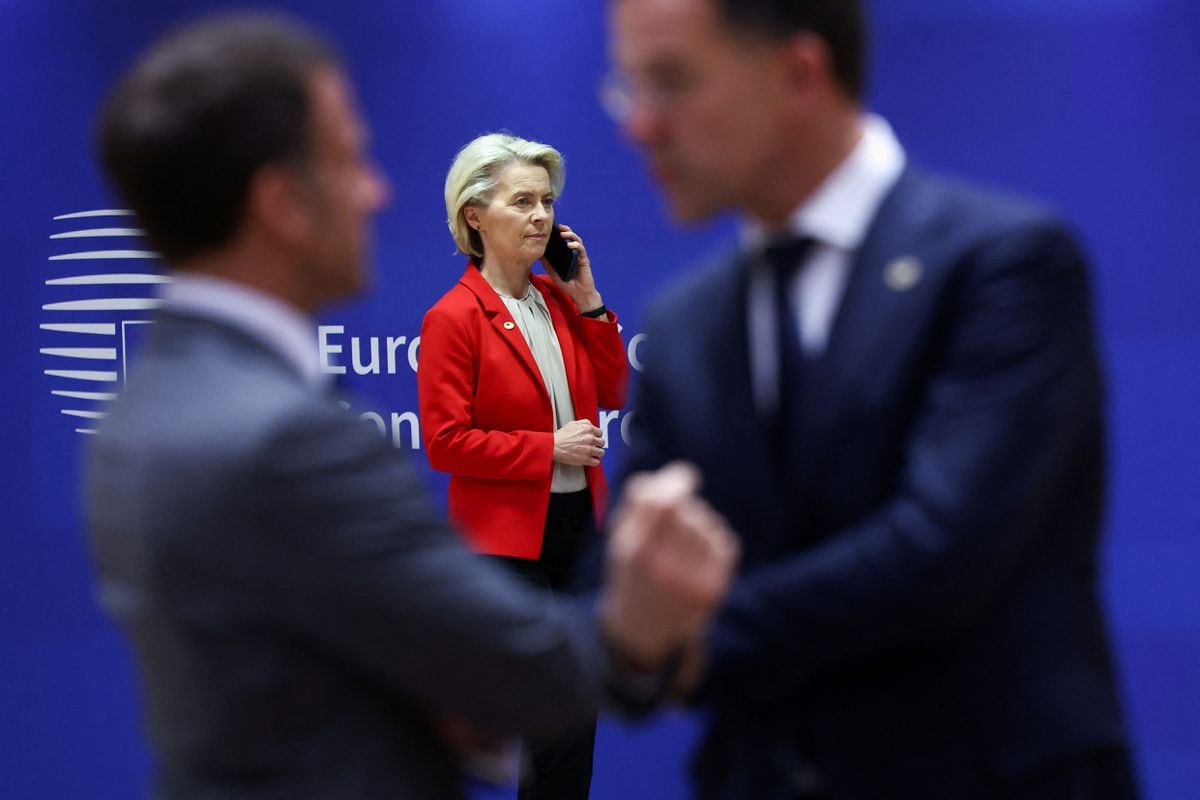The extraordinary meeting of the heads of State and Government of the European Union this Wednesday in Brussels was going to be dedicated to the economy. But the volatile international situation, especially the fear of an even more serious escalation in the region after Iran’s attack with missiles and drones on Israel last Saturday, has disrupted the plans. Concern about an increase in violence has hovered over the first day of meetings of the Twenty-seven. While they discuss how and how much – there is no complete agreement – to extend the sanctions against Tehran, they have joined international voices that urge the Government of Benjamin Netanyahu not to replicate the attack with another that makes a de-escalation even more difficult.
Significant is that one of those who have most clearly expressed this sentiment at the meeting in Brussels is one of Israel’s most robust allies in the EU since the beginning of the conflict with the Hamas attack on October 7, Germany. It is good, said its foreign minister, Olaf Scholz, that Israel managed to largely repel the Iranian attack. Something he did, he recalled, “with friends and allies.” And it is those same friends and allies, he recalled, who are now asking him to restrain himself, because responding with another attack “would not be intelligent,” he stressed.
“For us it is important that this moment be taken advantage of for a greater de-escalation and that Israel also takes advantage of this success to strengthen its position throughout the region, instead of responding with a massive attack of its own” on Iran, Scholz said as soon as he arrived. the top. “It would be smarter to take a good look at what has been achieved with the defense,” he insisted, making it clear that he is not the only one with this opinion: “I think it is something that has been well understood everywhere and that many have expressed it this way. ”, he noted.
“The Iranian attack represents a paradigm shift and confronts us with new security challenges, but all efforts are now focused on containing the conflict and preventing the entire region from burning, on avoiding a total escalation,” agreed the Austrian Chancellor, Karl Nehammer, another of the leaders who have most supported Israel and who have most resisted in the more than six months of conflict in Gaza to putting something that could be perceived as a criticism of Israel as a common position of the EU.
The fear that violence will spread throughout the region, especially to Lebanon, is however too great to bite the tongue now. Calls for restraint from all parties, but especially from Israel, have been repeated in the EU since the weekend, in which practically all European leaders expressed their condemnation of the Tehran attack.
“Maximum containment”
Join EL PAÍS to follow all the news and read without limits.
Subscribe
This is also stated in the conclusions of the extraordinary summit this Wednesday and Thursday, in which, in addition to “strongly and unequivocally” condemning Iran’s attack against Israel, the Twenty-Seven “urge all parties to exercise maximum restraint and to abstain of any action that could increase tensions in the region,” according to the draft to which EL PAÍS has had access.
These also indicate that the EU “will take more restrictive measures against Iran”, especially regarding “unmanned aerial vehicles (drones) and missiles”, with the explicit aim of contributing to “de-escalation and security in the region”. .
The sanctions were already discussed in the extraordinary virtual meeting of foreign ministers convened the day before by the head of European diplomacy, Josep Borrell. According to him, in addition to expanding the existing ones, the Commission’s legal service has been asked if there is a legal basis to declare the Iranian Revolutionary Guard a “terrorist organization”, as claimed by some European States and Israel itself, although many others They harbor doubts and, like Scholz or the Prime Minister of Luxembourg, Luc Frieden, they hide behind the need to do a legal study before making a statement.
Yes, rulers such as the Prime Minister of Belgium, Alexander De Croo, have openly done so: “My position is that the Iranian Revolutionary Guard should be put on a sanctions list.” It would be “a very important signal,” he noted, at the same time that he has joined the voices that call on all parties to the conflict to restraint.
The meeting in Brussels until this Thursday will also serve to assess whether any other country is willing to join the initiative led by the President of the Government, Pedro Sánchez, to recognize Palestine as a State.
To this end, Sánchez, who has been on tour for several days trying to bring countries into his proposal, has a determined ally in Brussels, the new Irish Prime Minister, Simon Harris: “I intend to take advantage of this appointment to speak with other colleagues and “to see if other countries want to move forward with Spain and Ireland to recognize the State of Palestine,” he said, indicating that it would be a “positive” gesture towards the position – this one, already agreed upon in the EU – of the need for a two-way solution. State.
Sánchez will hold his last meetings in this regard this Thursday during the summit – with Belgium, Luxembourg and Malta. Although the Belgian De Croo has been an ally of Spain in the position on the Middle East, his Government is wary of taking a merely “symbolic” step. The recognition of Palestine “must be part of a political process and not a symbolic decision,” his Foreign Minister, Hadja Lahbib, reiterated a week ago.
